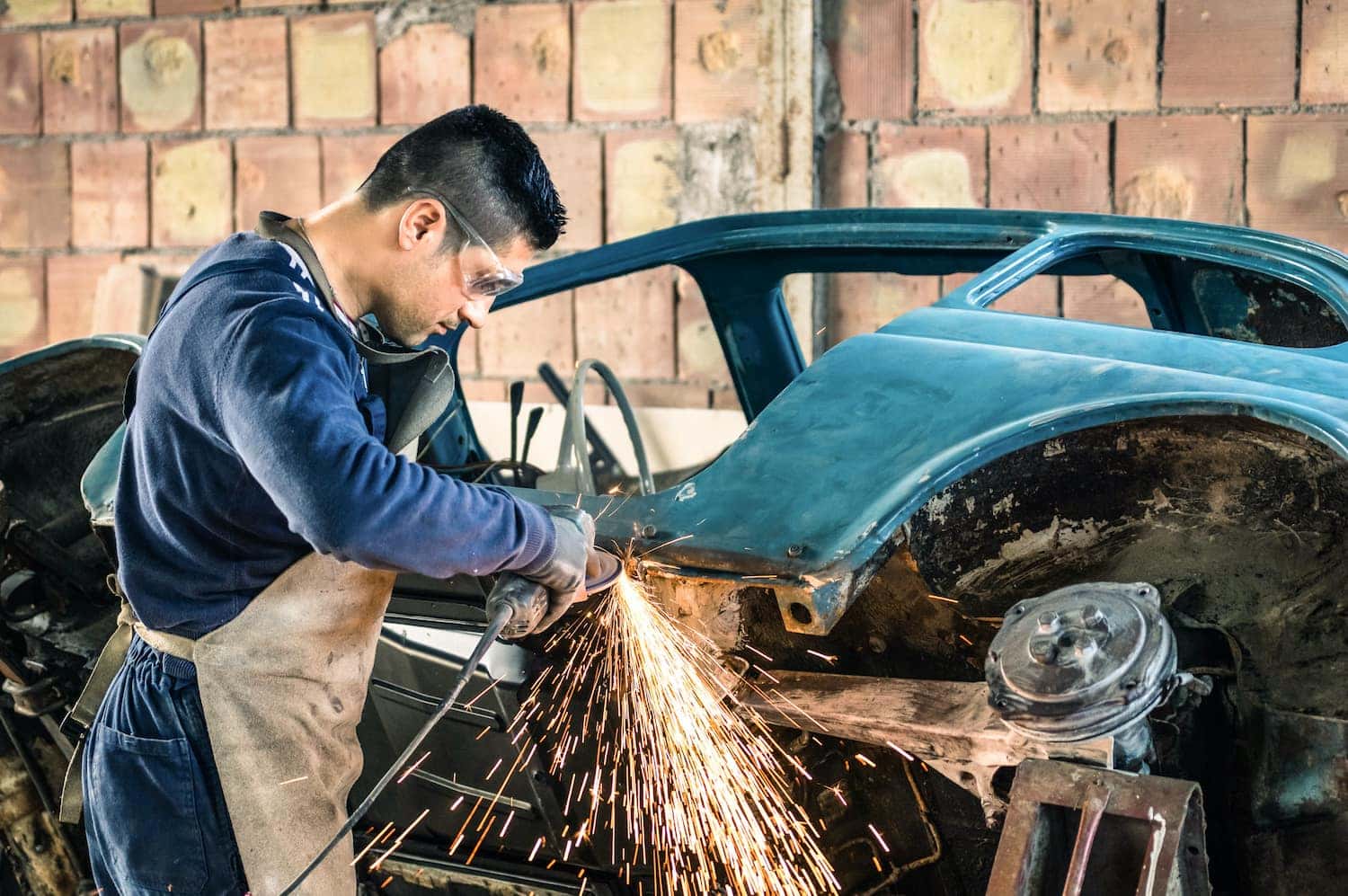Classic cars are more than just vehicles; they’re rolling pieces of history that embody design innovation, cultural shifts, and a deep appreciation for craftsmanship. Owning a classic car allows you to connect with the past and turn heads on the road. However, keeping these automotive treasures running smoothly requires specialized knowledge and experienced mechanics. This article delves into the world of classic auto repair, exploring the unique considerations involved in maintaining and restoring these cherished vehicles.
The Importance of Classic Auto Repair Specialists
Classic cars are fundamentally different from their modern counterparts. They often feature simpler designs, carburetor-based fuel systems, and mechanically operated components. Modern mechanics, accustomed to computer-controlled engines and advanced diagnostics, may not possess the specific skills and knowledge required to effectively repair classic vehicles. This is where classic auto repair specialists come in.
What Makes Classic Auto Repair Different?
Classic auto repair shops possess a unique skillset tailored to the specific needs of older vehicles. Here are some key aspects that differentiate them from general auto repair shops:
- In-depth Knowledge of Classic Cars: Classic auto repair specialists have a deep understanding of the specific makes, models, and engineering nuances of classic vehicles. They are familiar with common issues associated with different eras of car manufacturing and possess the knowledge to diagnose and repair problems effectively.
- Experience with Obsolete Parts: Finding replacement parts for classic cars can be a challenge. Classic auto repair shops have established networks and resources to source obsolete parts, remanufactured components, or use workarounds to keep your classic car running.
- Specialty Tools and Equipment: Classic cars may require specialized tools and diagnostic equipment not commonly found in modern repair shops. Classic auto repair specialists invest in these tools to ensure they can properly service your vehicle.
- Attention to Detail and Craftsmanship: Classic car repair often involves a meticulous approach, requiring attention to detail and a dedication to preserving the car’s originality. Classic auto repair specialists understand the importance of maintaining the car’s historical integrity while ensuring its functionality.
Services Offered by Classic Auto Repair Shops:
Classic auto repair shops offer a wide range of services to keep your classic car in top condition. Here are some common services:
- Routine Maintenance: Regular oil changes, tune-ups, and brake checks are crucial for any vehicle, and classic cars are no exception. Classic auto repair shops understand the specific maintenance schedules and procedures required for older cars.
- Engine Repair: Classic car engines may require specialized care, from carburetor adjustments and ignition system repairs to rebuilding engines using high-quality replacement parts.
- Electrical System Repair: Electrical systems in classic cars can be complex and prone to issues over time. Classic auto repair specialists can diagnose and repair electrical problems, ensuring your car’s lights, gauges, and other electrical components function properly.
- Transmission Repair: Manual transmissions were prevalent in classic cars. Classic auto repair shops can handle clutch repairs, overhaul transmissions, or replace worn-out components to keep your classic car shifting smoothly.
- Bodywork and Restoration: Many classic car owners take pride in the visual appeal of their vehicles. Classic auto repair shops may offer bodywork services like dent removal, rust repair, and paint jobs, or partner with bodywork specialists to ensure your classic car retains its original shine.
Finding the Right Classic Auto Repair Shop:
Entrusting your cherished classic car to the right repair shop is crucial. Here are some tips for finding a reputable classic auto repair specialist:
- Seek Recommendations: Talk to other classic car owners in your area for recommendations. Online forums and car clubs can also be a valuable resource for finding qualified shops.
- Research and Read Reviews: Research potential repair shops online and read reviews from past customers. Look for shops with a proven track record of working on classic cars similar to yours.
- Experience and Certifications: Inquire about the shop’s experience with your specific car’s make and model. Look for shops with technicians who possess certifications relevant to classic car repair.
- Communication and Transparency: Choose a shop that communicates clearly and openly about the repairs needed, the estimated costs, and the timeline for completion. Don’t hesitate to ask questions and ensure you feel comfortable with the shop’s approach.
Conclusion:
Owning a classic car is a unique privilege that allows you to experience automotive history firsthand. By partnering with a skilled and experienced classic auto repair specialist, you can ensure your classic car receives the specialized care it needs to stay on the road for generations to come. Classic auto repair is an investment in preserving automotive heritage, allowing you to continue enjoying your classic car and creating lasting memories behind the wheel.

